Regardless of the weather outside, a warm cup of tea is a comfort like none other. The smell of cinnamon while cozied up in the early morning hours before the chaos of the day erupts is the ultimate relaxation combo.
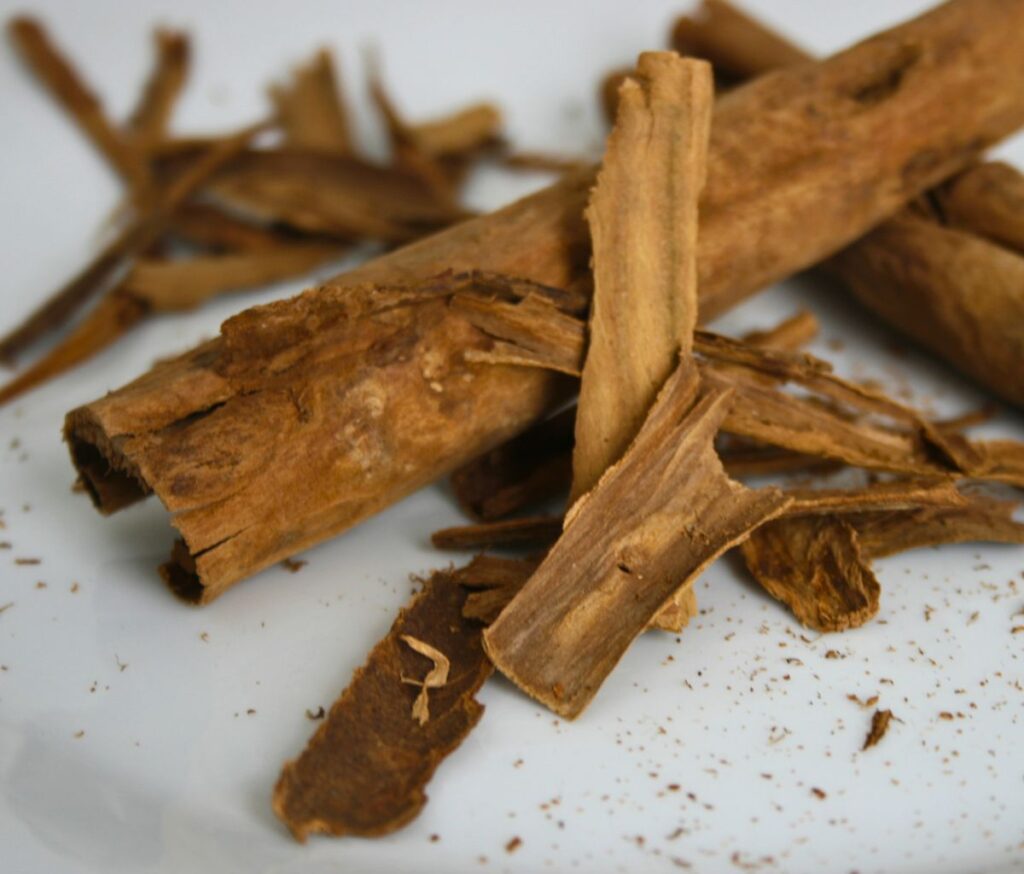
This post contains affiliate links, which means I make a small commission with no extra cost to you. See full disclosure here.
The incredible health benefits of cinnamon tea are noted as I wind down in the evening with a book before bed. I mean, for as far back as recorded history will take us, cinnamon has been used for its medicinal properties.
Let’s dive into Cinnamon tea benefits for your health, How to make it (so easy!), and potential side effects to watch for.
What is Cinnamon Tea?
So what exactly is cinnamon tea? It truly is as simple as it sounds. It is made by steeping cinnamon sticks or powder.
It is important to note, though, that there are 2 different kinds of cinnamon! And when we discuss the health benefits of cinnamon, we’re typically referring to only one of these.
According to healthline, there is Ceylon (true Cinnamon), and Cassia.
Cassia Cinnamon: Brown-red thicker sticks with a rough texture. It is of cheaper quality and the cinnamon that is most commonly consumed.
About 95% of its essential oil is cinnamaldehyde, which gives it a very strong, spicy flavor.
Ceylon Cinnamon: Tan-brown in color with many soft, tight layers. This has a more mild and sweet flavor profile with only about 50-63% of its essential oil being cinnamaldehyde.
It is also rather expensive compared to Cassia.
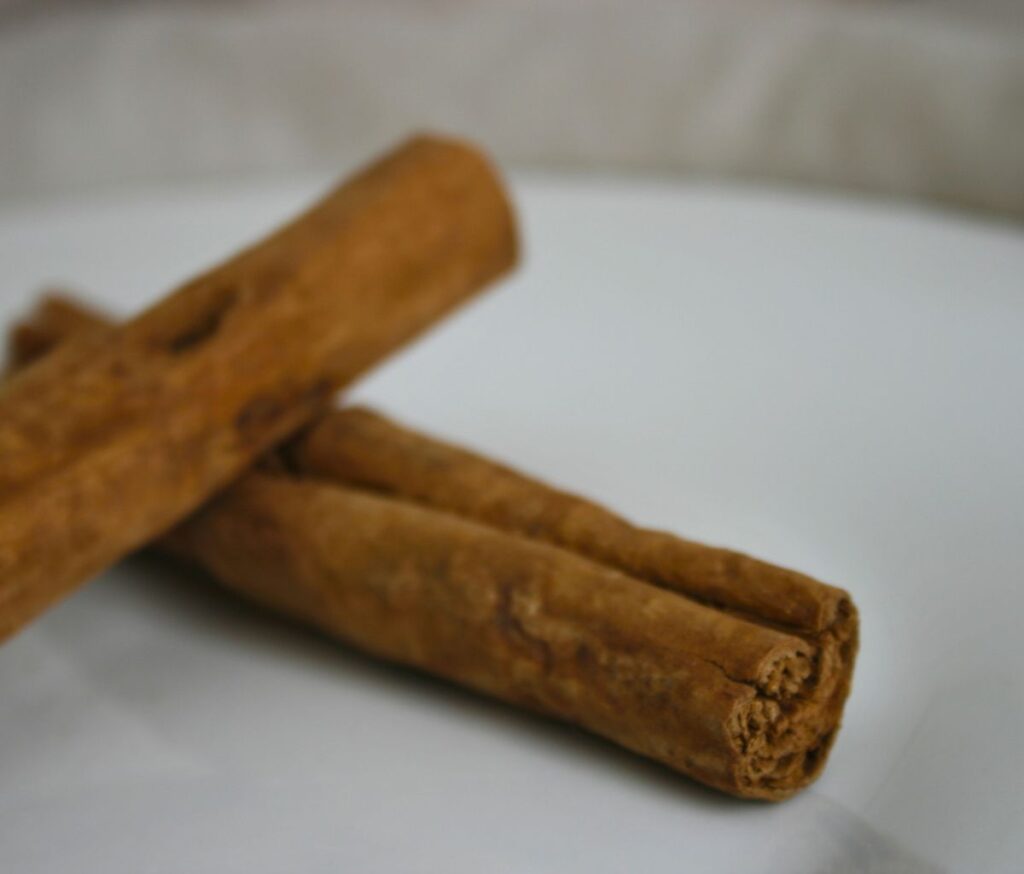
Health Benefits of Cinnamon Tea
According to an extensive study from PubMed, Cinnamon has effects on:
- anti-inflammatory
- antimicrobial
- antioxidant
- antitumor
- cardiovascular
- cholesterol-lowering
- immunomodulatory (modifies immune system by stimulating or surpressing specific parts)
1. May be good for diabetes
Healthline reports that using ceylon powder as a supplement may reduce blood sugar spikes, increase insulin sensitivity and improve metabolic markers associated with insulin resistance.
It also reported significant reductions in fasting blood sugar levels within several months of using 1-6 grams of cassia powder daily.
All of this with minimal to no side effects!
2. Supports Heart Health
Supplementing with with at least 3/4 of a teaspoon per day was able to reduce levels of triglycerides, total cholesterol, and LDL (bad) cholesterol.
This can be life changing for families like ours where our family history includes heart disease due to LDL cholesterol!
Moreover, its been shown that consuming cinnamon regularly for at least 8 weeks reduces blood pressure. Again, great news for those who may struggle with hypertension.
3. Antioxidant & Anti-Inflammatory Properties
Cinnamon is rich in polyphenol antioxidants. As a result, cinnamon has amazing anti-inflammatory properties.
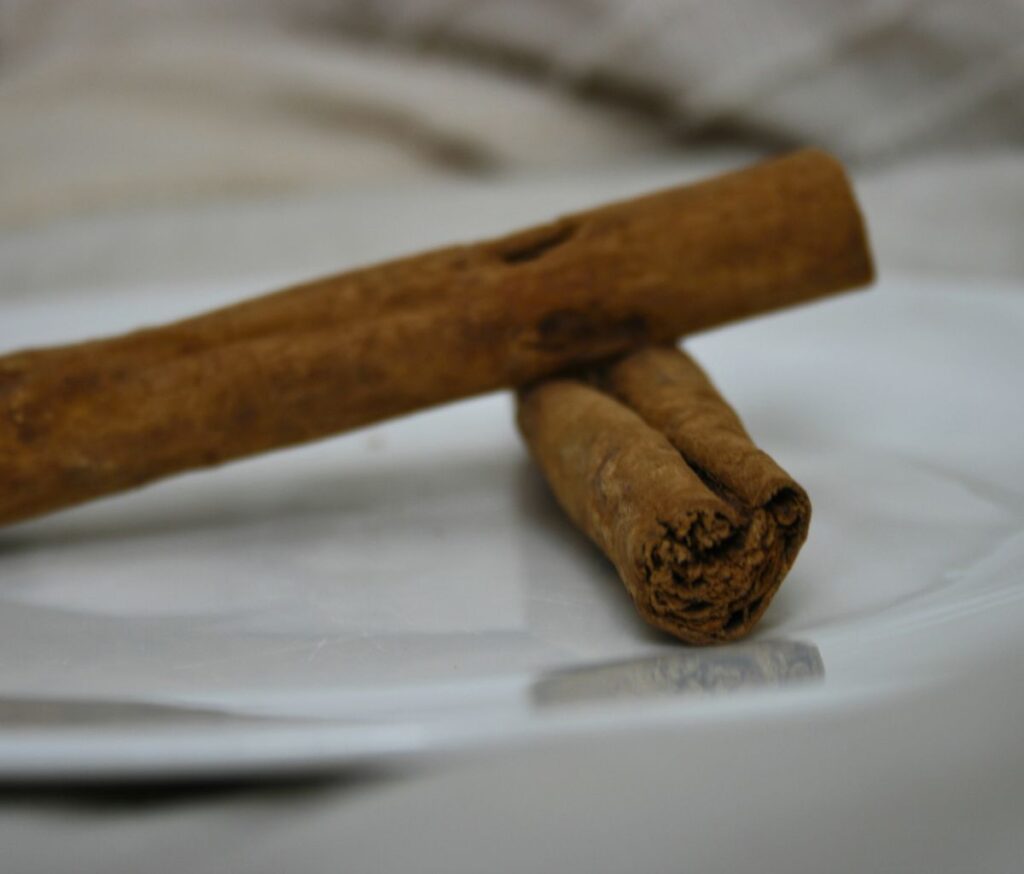
4. May Positively Affect Neurodegenerative Diseases
Neurodegenerative diseases are diseases like Dementia, Alzheimer’s, Parkinson’s, ALS, MS to name a few.
Certain compounds found in cinnamon seem to stop the buildup of a protein called tau in the brain, which is one of tell tale signs of patients with Alzheimer’s.
5. Immune Support and Antimicrobial Properties
Further research is required due to research being limited to only test tube and animal studies.
However, these suggest that cinnamon has components that may be effective against many viral and bacterial infections.
Some examples include fungi in the respiratory tract, inhibit growth of salmonella and listeria, or even protect against the flu and dengue.
This is particularly interesting to me because although dengue may not be very common in the U.S., I remember doing a school project in my elementary school years because there was an outbreak in Dominican Republic.
6. Supports Weight Loss
The conclusion of a PubMed study is that they saw a significant enough reduction in BMI and body weight by supplementing with Cinnamon. Greater results were found when consuming more than 3 grams daily. Great results were also found in patients with PCOS.
This being said, it is important to note that drinking cinnamon tea alone with an otherwise unhealthy diet is unwise. However, in supplementation to a healthy diet, it showed proven results.
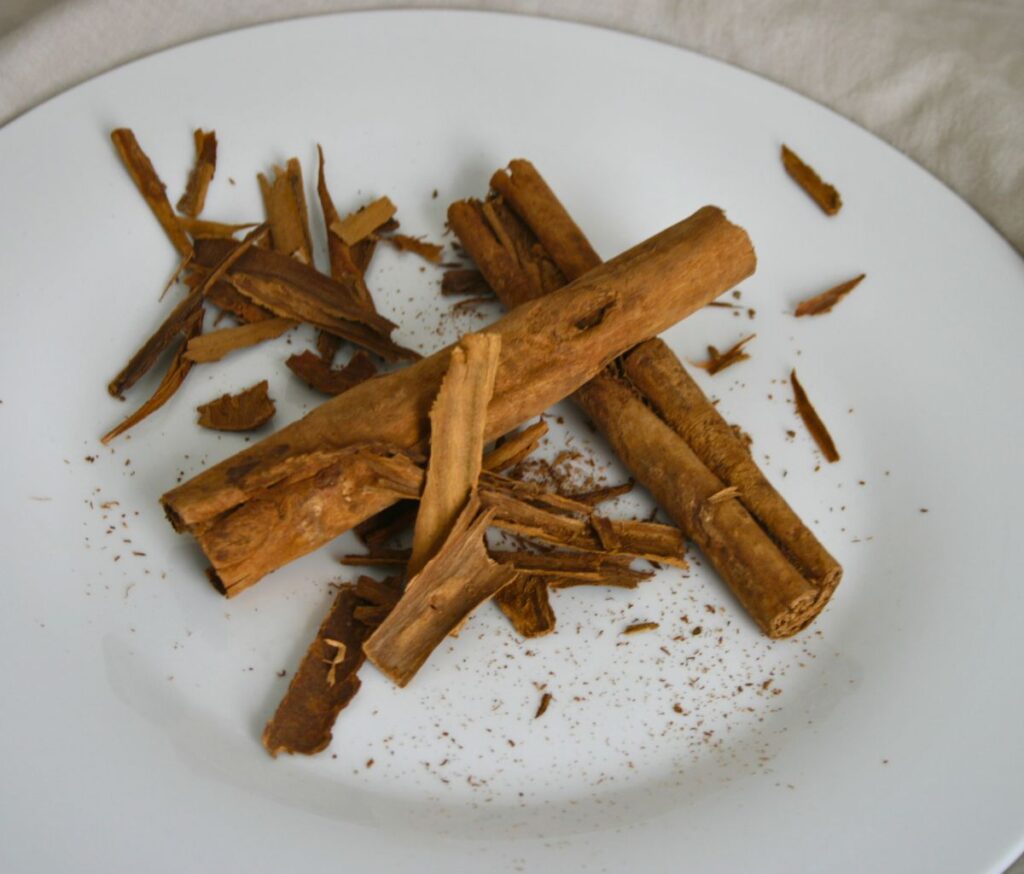
How to Make Cinnamon Tea
A simple cup of cinnamon tea can be a small act of care for your body and soul.
- Fill your pot with water
- Add 3 cinnamon sticks (if you have powder, add 3 tsp of cinnamon to a tea bag)
- Place on medium-high heat, once it begins to boil reduce to medium-low
- Let simmer for 10-15 min
- Remove from heat and let it rest and cool slightly (5-10 min)
- Add honey to taste and enjoy!
How to enhance your Cinnamon Tea Recipe
As a tea girl, I rather enjoy tea creation. So for added benefits from other sources, I like to enhance my tea with different add ons. These can be added at the very beginning into your pot, but are all optional though.
- Apples for Cinnamon Apple Tea
- Ginger for Cinnamon Ginger Tea
- Lemon or orange for Cinnamon Citrus Tea
Cinnamon Tea Potential Side Effects
Healthline also teaches that cassia cinnamon contains very high doses of coumarin, a compound found in some plants. This is concerning because in high doses, coumarin can cause damage to the lungs, kidneys, and liver.
Exceeding the daily limit of coumarin can easily occur with just 1-2 teaspoons of cassia. On the other hand, ceylon has 250 times less coumarin than cassia.
Overall, cassia is more cost effective, but it high concentration of coumarin is a cause for concern if you ingest it regularly.
Ceylon, may be harder to find, but has less potential to cause any effects when used regularly.
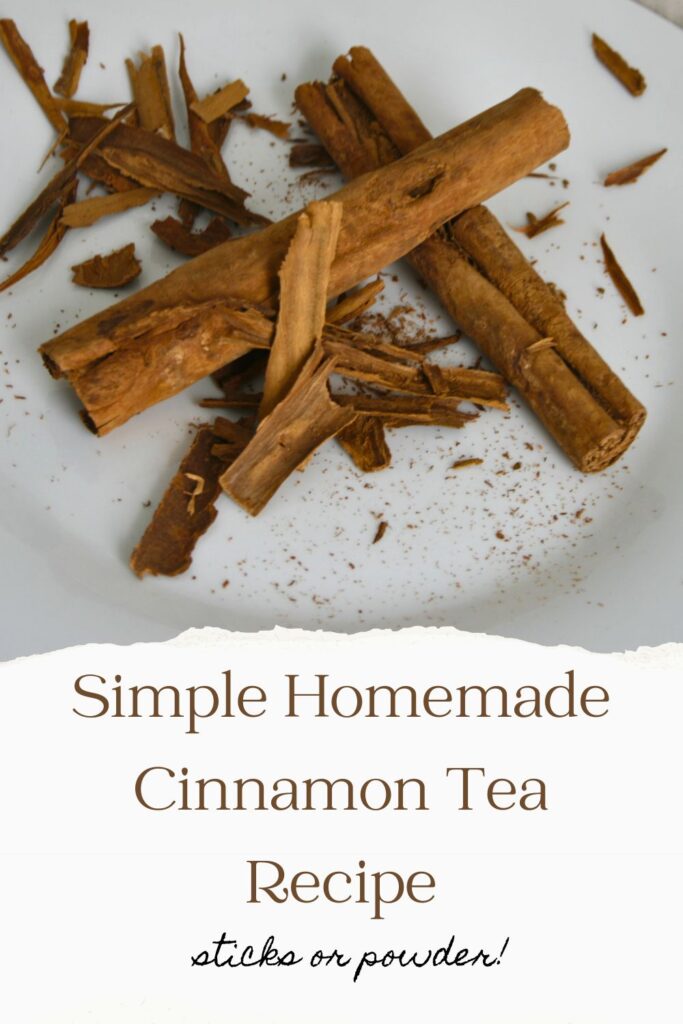
Cinnamon Tea vs. Cinnamon Water
The most important thing to note here is that whether making/drinking cinnamon tea or cinnamon water, both have all the health benefits from the cinnamon itself.
Cinnamon water is just that, water infused with cinnamon sticks or powder by soaking the cinnamon.
Whereas cinnamon tea is an herbal tea made by infusing cinnamon sticks, powder, or tea bags in hot water. Another key difference is that herbal tea is often with other beneficial ingredients like flowers, ginger, honey etc.
Tips for the best Cinnamon Tea
- If there is any way possible to get your hands on some ceylon cinnamon, I highly recommend even if its just to try it! Whether powder or stick form, its definitely worth it.
Most often, my grandmother brings me some from Dominican Republic when she travels back as I find it more to commonly used there than in the states.
An alternative that I have found is international grocery stores! It seems to be much easier to find ceylon cinnamon at a hispanic or oriental grocery store.
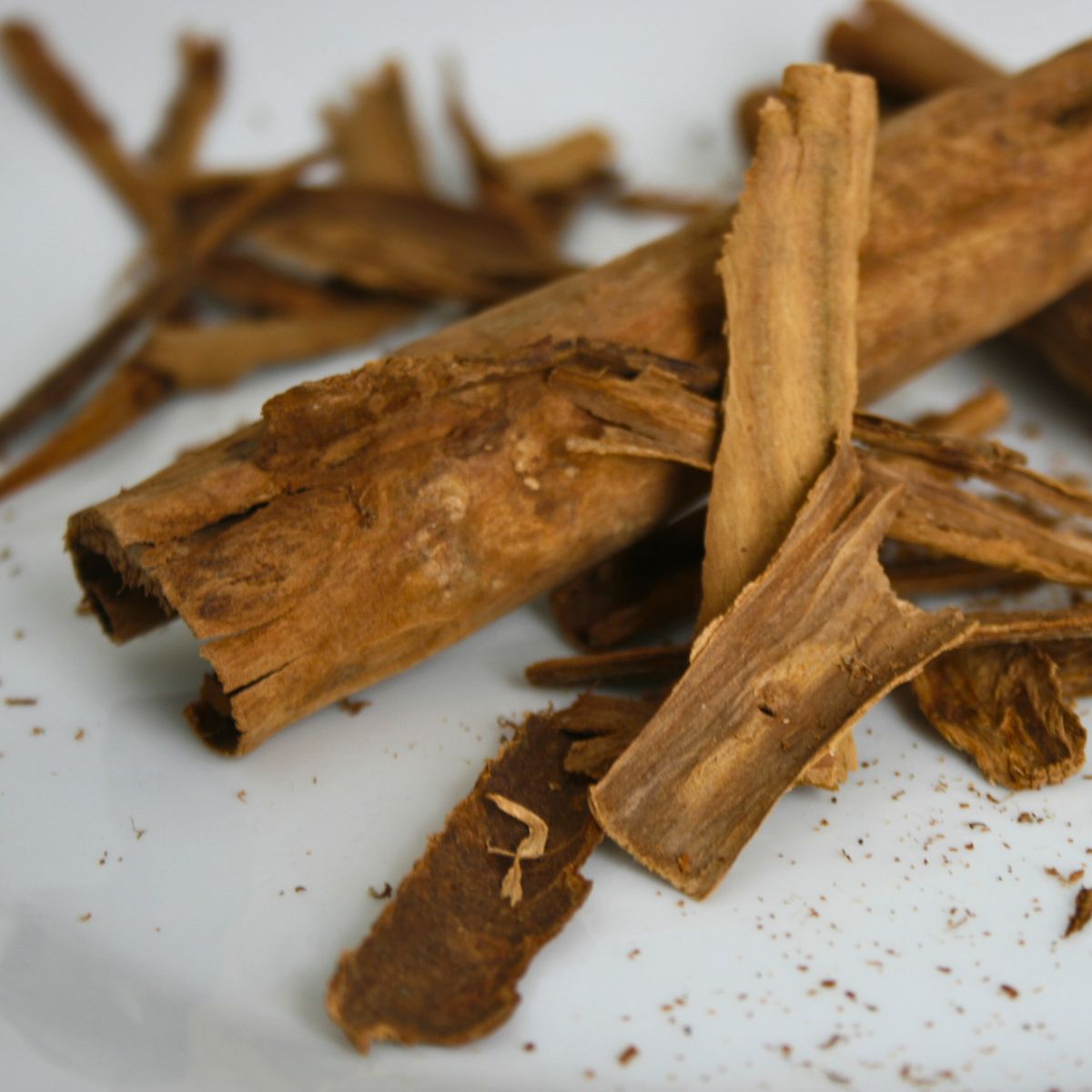
How to Make Cinnamon Tea (Using Sticks or Powder)
Ingredients
Method
- Fill your pot with water
- Add 3 cinnamon sticks (if you have powder, add 3 tsp of cinnamon to a tea bag)
- Place on medium-high heat, once it begins to boil reduce to medium-low
- Let simmer for 10-15 min
- Remove from heat and let it rest and cool slightly (5-10 min)
- Add honey to taste and enjoy!
Notes
- Apples for Cinnamon Apple Tea
- Ginger for Cinnamon Ginger Tea
- Lemon or orange for Cinnamon Citrus Tea
More posts you’ll love:
Red Onion Tea Benefits: Best Tea for Congestion and Cough
The anti-inflammatory Pineapple Tea Recipe you Need!
Faith. Family. Simple living.
Get devotionals, recipes, and encouragement for a Christ-centered home — right in your inbox, helping avoid and unplug from the chaos of social media.

Leave a Reply